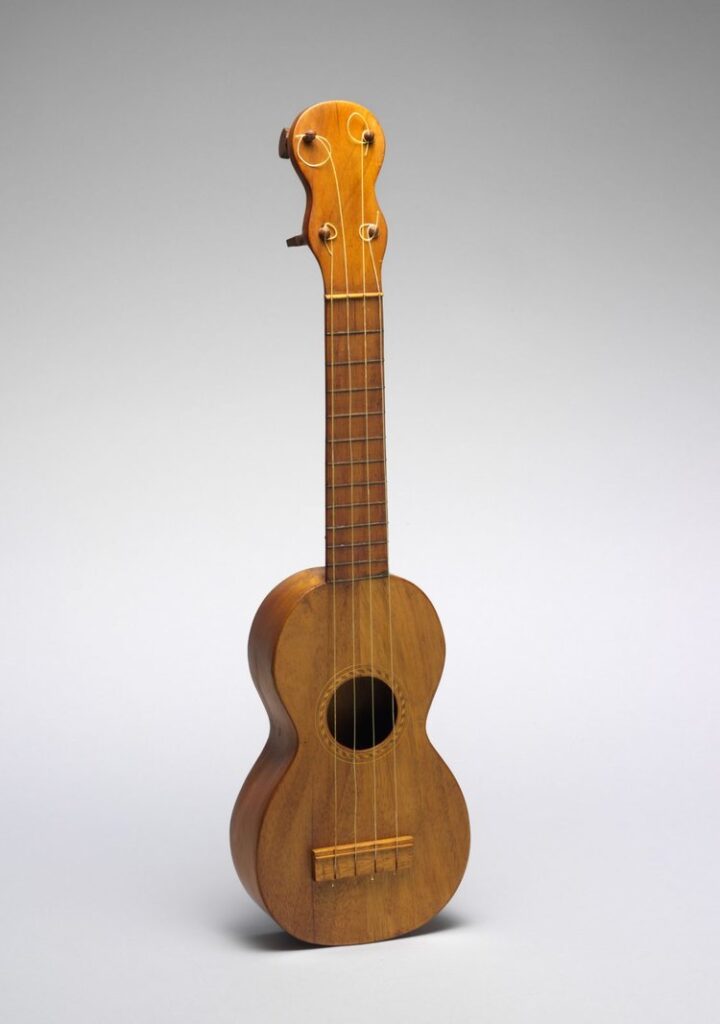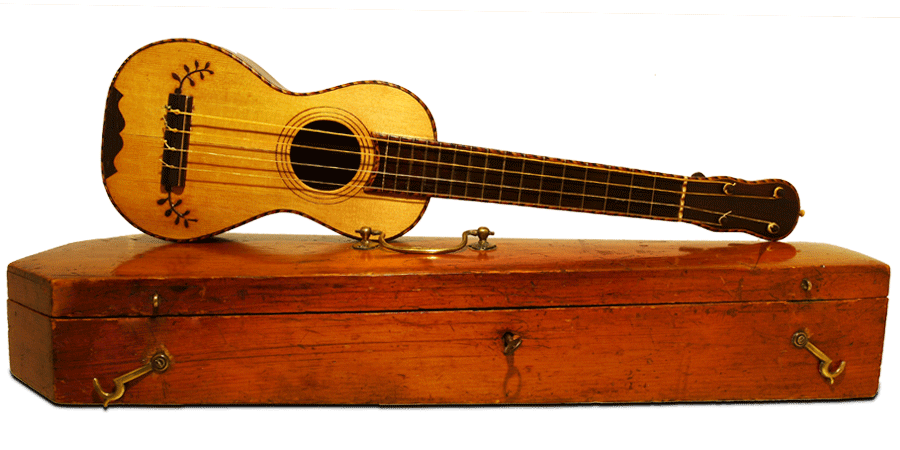Have you ever wondered where you can learn about the rich history of the ukulele? Look no further! In this article, we will explore the best place to dive into the fascinating origins and evolution of this beloved instrument. From its humble beginnings in Hawaii to its worldwide popularity today, prepare to be captivated by the enchanting story behind the ukulele. Whether you are a seasoned player or simply curious about its history, this article is your ticket to uncovering the secrets of the ukulele’s past. So grab your favorite strumming instrument and get ready for a delightful journey through time!
1. Origins of the Ukulele
1.1 Introduction to the Ukulele
Hey there! Are you curious about the origins of the ukulele? Well, you’ve come to the right place! The ukulele is a fascinating instrument with a rich history that dates back to the 19th century. This small, four-stringed instrument has become synonymous with Hawaiian music and culture. So, let’s dive in and explore the fascinating journey of the ukulele!
1.2 The Origin and Evolution of the Ukulele
The ukulele, affectionately known as “uke” by enthusiasts, has its roots in Portugal. In the 1880s, Portuguese immigrants arrived in Hawaii carrying with them a small guitar-like instrument called the machete. The machete, also known as the braguinha or cavaquinho, had four strings and was strummed using the fingers or a pick.
In Hawaii, the machete underwent some modifications, including changes in size and tuning, which led to the creation of the ukulele as we know it today. The name “ukulele” translates to “jumping flea” in Hawaiian, a reference to the swift finger movements required to play the instrument.
1.3 The Influence of Portuguese Instrumentation
The arrival of Portuguese immigrants in Hawaii during the late 19th century played a significant role in shaping the ukulele’s development. These immigrants brought with them not only their musical traditions but also their instruments, including the machete. As the locals embraced the unique sounds and playability of the machete, the instrument began to evolve, incorporating elements of Hawaiian culture.
The Portuguese instrumentation, particularly the machete, merged with Hawaiian folk music, creating a distinctively enchanting blend. The ukulele soon became a popular instrument among the locals, finding its way into the islands’ vibrant music scene.
1.4 The Ukulele in Hawaii
Hawaii became the birthplace of the ukulele’s true identity and its rise to prominence. The instrument found its way into the hearts and hands of the Hawaiian people, who fully embraced its joyful and melodious charm. The ukulele became an integral part of Hawaiian culture, instantly recognizable as a symbol of the islands’ music and spirit.
It didn’t take long for the ukulele to spread beyond the shores of Hawaii. The instrument’s popularity skyrocketed, thanks in part to the promotion efforts of Hawaiian musicians who toured the mainland United States. As the ukulele’s enchanting sounds reached the ears of audiences worldwide, its impact on popular music began to take shape.
2. Historical Significance of the Ukulele
2.1 The Role of the Ukulele in Hawaiian Culture
In Hawaiian culture, the ukulele holds great significance. It serves as a vessel for expressing love, joy, and stories deeply rooted in the islands’ history. From traditional Hawaiian songs known as “mele” to modern-day compositions, the ukulele has been an essential accompaniment to the Hawaiian musical journey.
The ukulele’s association with Hawaiian culture extends beyond music. It has become a symbol of hospitality, warmth, and the aloha spirit that Hawaii is famous for. From intimate gatherings to grand festivals, the ukulele’s presence is a constant reminder of the rich cultural heritage of the islands.
2.2 The Ukulele’s Rise to Popularity in the Early 20th Century
The ukulele experienced a meteoric rise to popularity in the early 20th century. Its infectious sound, compact size, and relative ease of learning attracted people from all walks of life. In the United States, the ukulele became a cultural phenomenon, capturing the hearts of millions.
One key factor in the ukulele’s popularity was the accessibility it offered to aspiring musicians. Unlike larger instruments like the piano or guitar, the ukulele was affordable and portable, making it an ideal choice for beginners and those seeking a light-hearted musical experience.
2.3 Ukulele’s Impact on Popular Music
The ukulele’s impact on popular music cannot be overstated. From the bright melodies of Tiny Tim’s “Tiptoe Through the Tulips” to the soulful sounds of Israel Kamakawiwo’ole’s rendition of “Over the Rainbow,” the ukulele has left an indelible mark on the global music landscape.
The versatility of the ukulele shines through in various genres, from folk and jazz to rock and pop. Its distinctive sound adds a playful and charming element to countless songs, capturing the hearts of listeners with its infectious happiness. The ukulele’s popularity in contemporary music continues to grow, with artists like Jason Mraz and Vance Joy incorporating it into their hit songs.

Explore Uncharted Hawaiian Destinations
3. Key Figures in Ukulele History
3.1 Manuel Nunes – The Maker of the First Ukulele
One of the key figures in ukulele history is Manuel Nunes, often credited as the maker of the first ukulele. Nunes, a Portuguese immigrant, arrived in Hawaii in the late 19th century and began crafting ukuleles using local woods and traditional techniques. His craftsmanship played a crucial role in establishing the ukulele as a distinctive instrument with its own unique sound.
3.2 Jonah Kumalae – Pioneer of mass-produced Ukuleles
Jonah Kumalae was a prolific ukulele maker who played a significant role in the ukulele’s popularity through mass production. In the early 20th century, Kumalae’s factory produced thousands of ukuleles, making the instrument more accessible and affordable for musicians worldwide. His dedication to quality craftsmanship and innovation helped shape the ukulele industry as we know it.
3.3 Roy Smeck – The Wizard of the Strings
Roy Smeck, known as the “Wizard of the Strings,” was a masterful ukulele player and entertainer who popularized the instrument in the early 20th century. His virtuosic performances showcased the ukulele’s potential, pushing boundaries and inspiring generations of musicians. Smeck’s talents and showmanship elevated the ukulele’s image, firmly establishing it as a serious instrument.
3.4 Eddie Kamae – Promoter of Hawaiian Ukulele Music
Eddie Kamae was a Hawaiian musician who played a significant role in popularizing Hawaiian ukulele music. As a founding member of the Sons of Hawaii, Kamae’s contributions to the preservation and promotion of traditional Hawaiian music cannot be understated. Kamae’s dedication to his craft and his deep connection to Hawaiian culture made him a beloved figure in the ukulele community.
4. Ukulele in Contemporary Times
4.1 Ukulele Resurgence in the 1990s and Early 2000s
In the 1990s and early 2000s, the ukulele experienced a renewed surge in popularity. Musicians and enthusiasts around the world, captivated by the ukulele’s joyful sound and accessibility, embraced the instrument with open arms. The ukulele’s resurgence was fueled by the rise of ukulele-centric bands, such as the Ukulele Orchestra of Great Britain, who brought the instrument into the mainstream spotlight.
4.2 Ukulele Festivals and Events Celebrating its History
Ukulele festivals and events have played a crucial role in celebrating and preserving the instrument’s history. These gatherings bring together ukulele players and enthusiasts from all over the world, fostering a sense of community and camaraderie. From the Ukulele Festival Hawaii to the Ukulele Melee in Maine, these events provide platforms for performances, workshops, and the exchange of musical ideas.
4.3 Modern Ukulele Innovations and Cultural Influence
The ukulele continues to evolve and adapt to modern times, with innovative designs and technological advancements enhancing its capabilities. From electric ukuleles to amplified pickups and built-in effects, these innovations have expanded the sonic possibilities and versatility of the instrument.
Furthermore, the ukulele’s cultural influence has spread far beyond its Hawaiian origins. It has found a home in various musical communities worldwide, inspiring countless musicians and fostering cross-cultural collaborations. The ukulele’s universal appeal and infectious charm have made it a beloved instrument in classrooms, community centers, and homes across the globe.

Plan Your Dream Hawaiian Getaway
5. Museums and Exhibitions
5.1 Ukulele Museum in Hawaii
For those seeking a deeper dive into the world of ukuleles, visiting a ukulele museum is an excellent way to immerse yourself in their history. One such museum is located in Hawaii, the birthplace of the ukulele. These museums exhibit an impressive collection of ukuleles spanning different eras, showcasing various models, craftsmanship techniques, and rare instruments.
5.2 Ukulele Hall of Fame Museum in Kansas
The Ukulele Hall of Fame Museum, located in Kansas, is another fantastic resource for ukulele enthusiasts. This museum celebrates the ukulele’s rich history with engaging exhibits, dedicated to preserving the instrument’s legacy and honoring key figures in its development. From vintage ukuleles to archival materials, the museum offers an extensive look into all aspects of ukulele history.
5.3 Other Notable Ukulele Exhibitions and Collections
Apart from the mentioned museums, several other notable ukulele exhibitions and private collections can be found worldwide. These exhibits often showcase the evolution of the instrument, from its humble origins to its modern innovations. Exploring these collections allows you to witness firsthand the craftsmanship and artistry that goes into creating these delightful instruments.
6. Online Resources
6.1 Websites and Online Archives
Thanks to the internet, learning about the history of the ukulele has become easier than ever before. Numerous websites and online archives provide a wealth of information about the instrument’s origins, historical figures, and notable events. Online resources often feature articles, photographs, audio recordings, and videos, allowing you to explore the ukulele’s history from the comfort of your own home.
6.2 Blogs and Discussion Forums
Blogs and discussion forums dedicated to the ukulele are valuable resources for interacting with fellow enthusiasts and learning more about the instrument’s history. These platforms foster a sense of community, providing opportunities to ask questions, share experiences, and discover new perspectives. From personal stories to in-depth analyses, blogs and forums are treasure troves of ukulele knowledge.
6.3 YouTube Channels and Video Lessons
YouTube has become a popular medium for both entertainment and education, and the ukulele community has tapped into its potential. Numerous YouTube channels offer tutorials, historical insights, and performances from renowned ukulele players. Whether you’re a beginner or a seasoned player, these video lessons can deepen your understanding of the ukulele’s history while improving your skills.

Experience Hawaii’s Unique Attractions
7. Books and Publications
7.1 Ukulele History Books for In-Depth Study
If you’re truly passionate about delving into the history of the ukulele, there are several books available that provide extensive information and scholarly insights. These books cover a wide range of topics, from the instrument’s origins and cultural significance to the biographies of key figures who shaped its development.
7.2 Ukulele Instructional Books with Historical Context
For those looking to combine learning the ukulele with a historical context, instructional books that include historical insights can be a valuable resource. These books often showcase classic ukulele songs while providing background information about their historical context, offering a well-rounded learning experience.
7.3 Ukulele Magazines and Periodicals
Ukulele-focused magazines and periodicals are excellent ways to stay up-to-date with the latest news and developments in the ukulele world. These publications often feature interviews with ukulele artists, gear reviews, and articles about the instrument’s history. Subscribing to these magazines can provide a regular dose of ukulele inspiration and knowledge.
8. Ukulele Workshops and Courses
8.1 In-Person Ukulele Workshops and Retreats
Attending in-person ukulele workshops and retreats is an incredible opportunity to immerse yourself in the ukulele world and learn directly from experienced instructors. These workshops often feature classes for players of all skill levels, covering topics such as technique, music theory, and, of course, ukulele history. The chance to connect with fellow ukulele enthusiasts and share your passion is an added bonus!
8.2 Online Ukulele Courses and Classes
If in-person workshops aren’t accessible to you, online ukulele courses and classes offer a convenient alternative. These virtual platforms provide a wide range of courses, from beginner basics to advanced techniques. Many online courses also incorporate historical context, ensuring that you gain a comprehensive understanding of the ukulele’s past while honing your skills.

9. Ukulele Communities and Organizations
9.1 Ukulele Clubs and Meetups
Ukulele clubs and meetups are fantastic opportunities to connect with fellow ukulele players, share music, and celebrate the instrument’s history together. These clubs often host regular jam sessions, open mics, and workshops, fostering a vibrant community that values creativity, learning, and camaraderie. Joining a ukulele club can provide a supportive environment for exploring the instrument’s history through shared experiences.
9.2 Ukulele Associations and Societies
Ukulele associations and societies play a crucial role globally in promoting the ukulele and its history. These organizations bring together enthusiasts and professionals, offering resources, events, and educational opportunities related to the instrument. By getting involved in these associations, you can contribute to preserving the ukulele’s legacy and helping future generations connect with its rich history.
10. Learning the History through Practical Experience
10.1 Visiting Ukulele Factories and Luthier Studios
For a truly immersive experience in the history of the ukulele, visiting ukulele factories and luthier studios provides a unique opportunity to witness the instrument’s creation firsthand. These establishments often offer guided tours, allowing you to observe the meticulous process of building a ukulele and gain insights into traditional craftsmanship techniques. Engaging with the skilled artisans responsible for crafting these beautiful instruments adds a personal touch to your understanding of ukulele history.
10.2 Attending Ukulele Masterclasses and Performances
Attending ukulele masterclasses and performances by renowned musicians provides a direct connection to the instrument’s history. Masterclasses offer the chance to learn from world-class ukulele players, delving deep into the intricacies of technique and interpretation. Meanwhile, performances showcase the ukulele’s versatility and evolution, providing a live experience that celebrates its rich history.
By exploring the origins, historical significance, key figures, contemporary impact, and resources for learning about the ukulele’s history, you’ll gain a comprehensive understanding of the instrument’s journey. So, grab a ukulele, immerse yourself in its enchanting melodies, and embark on a fascinating exploration of its past. Happy strumming!
